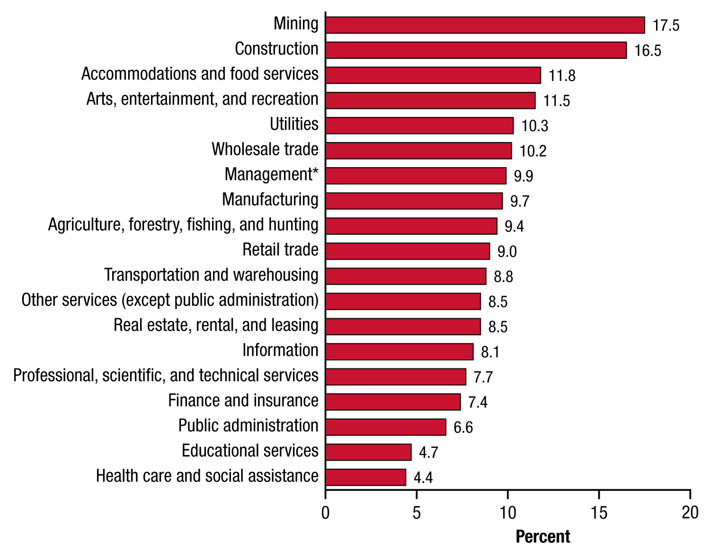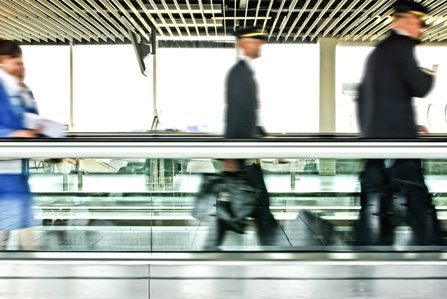Drug and Alcohol Addiction in Aviation

Substance abuse negatively affects every American industry through critical harms like:
- Lost productivity.
- Workplace accidents.
- Injuries.
- Missed work.
- Excessive sick days.
- Low morale.
- Interpersonal conflicts.
- Increased illness.
The Substance Abuse and Mental Health Services Administration estimates that U.S. companies lose billions of dollars each year because of employees’ alcohol and drug use problems. And while research shows that substance abuse rates among employees vary from one occupation and industry to another, all industries are affected by this issue.
While some may be quick to condemn addicts for negatively impacting the workplace, this view is misguided and unproductive. To improve public health, workplace safety, and economic activity, employed addicts need to seek help at treatment centers. And for fields like aviation, addicts who work in this sector absolutely need to seek treatment as soon as possible.
Addiction in Professional Sectors Like Aviation
It is a misconception to believe that most people who are addicted to drugs and alcohol are unemployed. In fact, the opposite is true. While an addiction to drugs and alcohol will often lead to job loss, addicts tend to seek new employment, as they require a source of income to fund their habit.
According to the Substance Abuse and Mental Health Services Administration, at least 10.8 million Americans who are working full-time are also individuals who are addicted to drugs and alcohol. On top of that, 3.3 million part-time workers are addicted to drugs and alcohol. About 55% of people in the U.S. who meet the drug and alcohol addiction criteria are employed full-time, while approximately 15% of addicts are employed part-time. This means that 70% of the addicted population in this country are employed, whereas just 16.8% are unemployed.
This information is helpful because it dispels the notion that people who are addicted to drugs and alcohol do not hold jobs. They do, and that’s all the more reason for them to get help for their addiction. Being addicted to drugs and alcohol makes it all but impossible to perform a job to the best of one’s abilities. For those who work in aviation who also struggle with an addiction to drugs and alcohol, it’s immensely important that they seek treatment as soon as possible.
Underlying Factors that May Contribute to Addiction Risk in Aviation
While addiction can crop up in any industry, some industries, like transportation, have higher than average addiction rates among their workers. According to the Substance Abuse and Mental Health Services Administration, transportation has a rate of about 8.8% of its workers being addicted to mind-altering substances.

Turning to aviation, when working to solve the problem of addiction in this field, it helps to understand why people who work in this sector may use drugs and alcohol. Some of the unique stress factors and adverse conditions that may lead to workers using substances as a coping mechanism are:

- Long work hours. People who work in aviation often work very long hours. This is true of those who work on airplanes, as they are routinely on the clock for the entirety of a flight, often with several flights in one shift. This is also true of support staff who work at the terminal; air traffic controllers, baggage handlers, security personnel, and gate attendants often on the clock non-stop for several hours at a time.
- Constantly traveling for work. Rather than having one stable place of work that can become comfortable, safe, reliable, dependable, and rewarding, aviation professionals are constantly traveling for work (given that the entirety of their career revolves around travel).
- Harsh schedules that adversely affect health. With airports and airplanes running around the clock, seven days per week, 365 days per year, the aviation industry is not modeled after a healthy schedule for the human body. Aviation workers often have to work long into the night or very early in the morning. They often have very little time at home with their families before they must arrive at work again for their next shift.
- The stress of an extremely high-pressure job. There is no doubt that aviation ranks at the top as a stressful job. Particularly for aircraft pilots and air traffic controllers, there is an immense burden of responsibility and a need for top-notch performance, as pilots and air traffic controllers are responsible for the safe transit of thousands of airline passengers every day.

The harmful physical effects of constant air travel. It’s no mystery that flying in airplanes does have some negative health effects. While these effects are negligible for passengers who only fly occasionally, the effects add up for aviation staff. Some such effects include the potential for slight radiation exposure, dehydration, deep vein thrombosis, and exposure to germs.
On top of the added stress factors that come with working in aviation, there are the unlimited and infinite personal life-crisis factors that could be occurring for any individual aviation worker. Such could also lead them to experiment with mind-altering substances as a coping mechanism.
Healthy, Safe Travel by Air; The Need for Addicted Aviation Professionals to Seek Treatment
Anyone who struggles with an addiction to drugs and alcohol needs to seek help as soon as possible. Substance abuse is devastating and dangerous. In aviation, about 11% of flight accidents are directly linked to mind-altering substances. Even just one aviation accident connected to substance abuse is unacceptable, but one study traced 467 aviation accidents from 1990 to 2005 back to substance abuse.
Beyond aviation accidents, substance abuse by itself is extremely dangerous and life-threatening. According to recent reports published by the Centers for Disease Control and Prevention, over 90,000 Americans died from drug overdoses in 2020. And according to the National Institute on Alcohol Abuse and Alcoholism, over 90,000 Americans die from alcohol-related causes each year.
If you know someone who is addicted to drugs and alcohol, someone who works in aviation and is using mind-altering substances as a coping mechanism, please get them help as soon as possible. Please don’t wait another day. Not only does their life hang in the balance, but the lives of countless passengers and coworkers are also at risk. Please get in touch with a qualified drug and alcohol rehab center today.
Sources:
- https://www.samhsa.gov/data/sites/default/files/NSDUH-SP132-FullTime-2014/NSDUH-SP132-FullTime-2014.pdf
- https://www.samhsa.gov/data/sites/default/files/report_1959/ShortReport-1959.html
- https://www.nationalgeographic.co.uk/travel/2020/03/frequent-flyer-effects-of-air-travel-human-body
- https://www.faa.gov/data_research/research/med_humanfacs/oamtechreports/2000s/media/200810.pdf
- https://www.cdc.gov/nchs/nvss/vsrr/drug-overdose-data.htm
- https://www.niaaa.nih.gov/publications/brochures-and-fact-sheets/alcohol-facts-and-statistics


